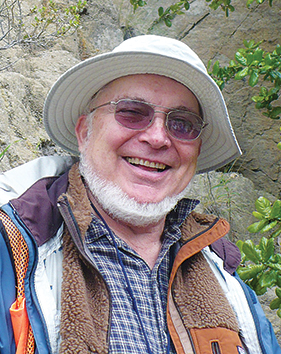The summer field camp is going strong in its second half-century.
Eldridge Moores saw through time and space. He was the first to realize North America and Australia were once linked in an ancient supercontinent, and to recognize remnants of ancient ocean crust in the mountains of Vourinos, Greece.

A field geologist at heart, Moores knew there was no better classroom for teaching geology than the outdoors. He founded the UC Davis summer field course in geology, still going strong after more than 50 years.
“Eldridge taught me that you should always be looking to solve a problem in the field, not just walking along looking at rocks,” said J. Curt Kramer (B.S. ’68, Ph.D. ’76), professor emeritus of geosciences at the University of the Pacific, who was one of the first teaching assistants for the field course.
Moores’ death, on Oct. 28, 2018, occurred in the middle of his favorite pastime — sharing his knowledge and excitement about geology on a field trip to the Feather River in Northern California.
Moores’ legacy extends well beyond academia through his efforts to elevate public awareness of geology. He and his wife, Judy Moores, introduced thousands of people to California geology through their field trips. One of the many was author John McPhee, who featured Moores in the Pulitzer Prize-winning Assembling California: Annals of the Former World.
Moores used the attention from the books to highlight his opinion that we must understand our planet to persist as a society. He ended every email with a quotation from Will Durant: “Civilization exists by geologic consent, subject to change without notice.” This has become the informal motto of the department he called home.
— Becky Oskin, content strategist in the College of Letters and Science, wrote this article for the fall 2019 issue of the College of Letters and Science Magazine.

